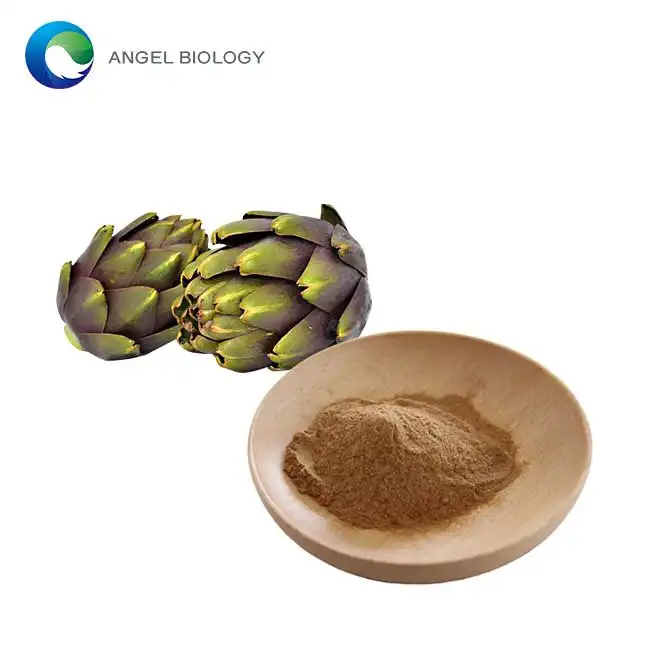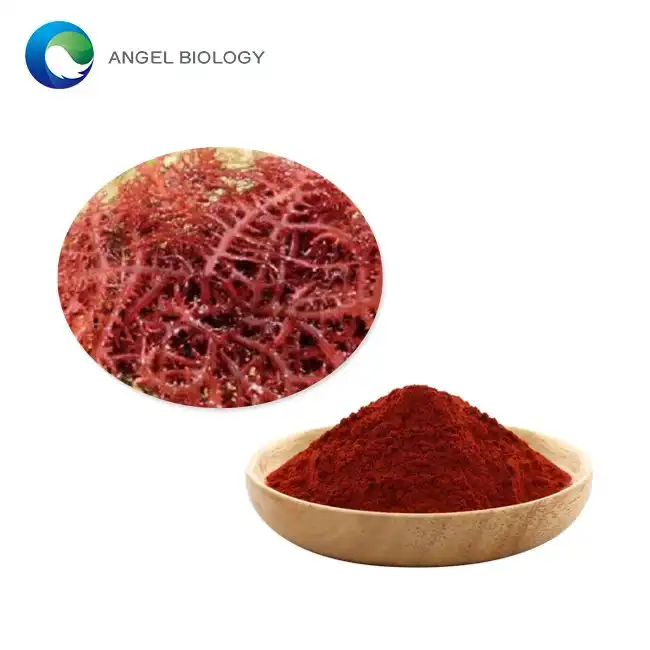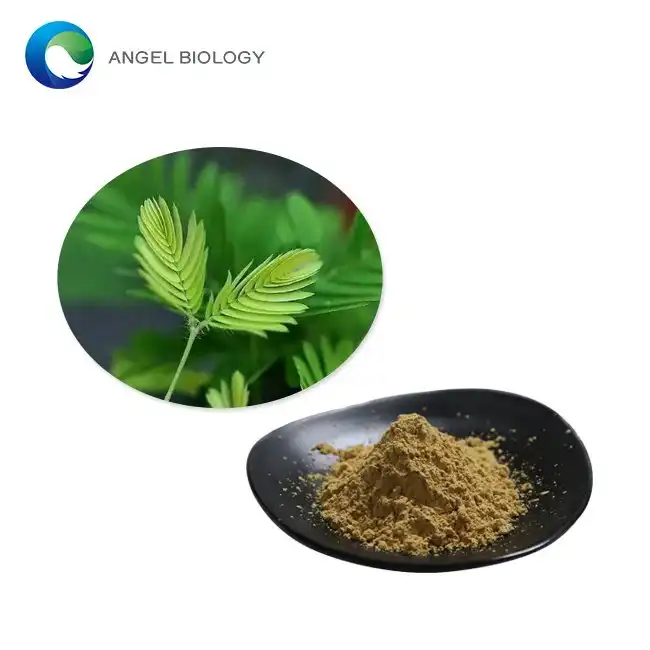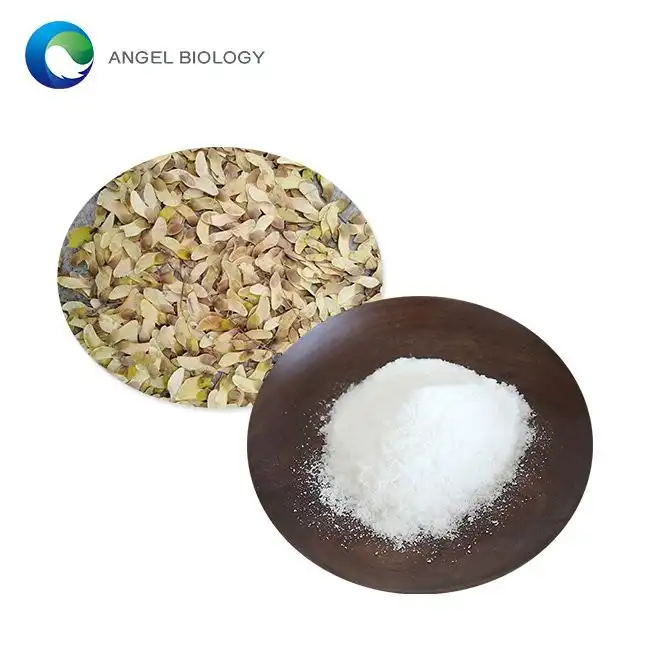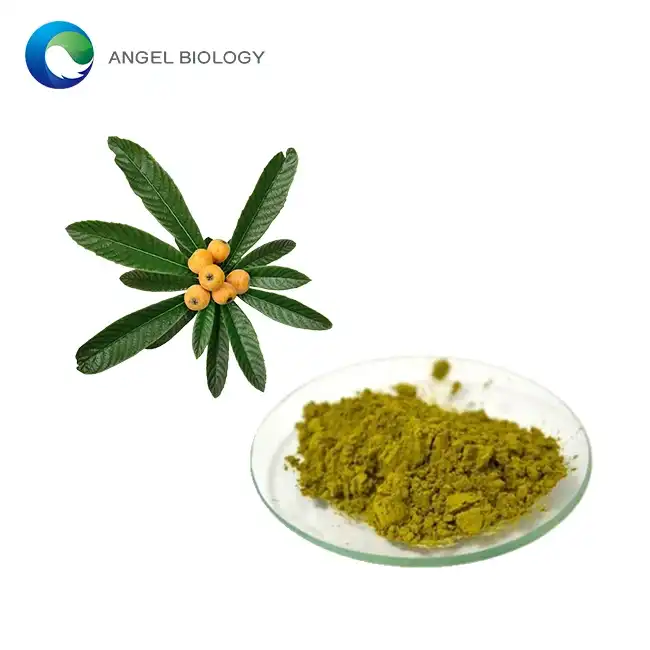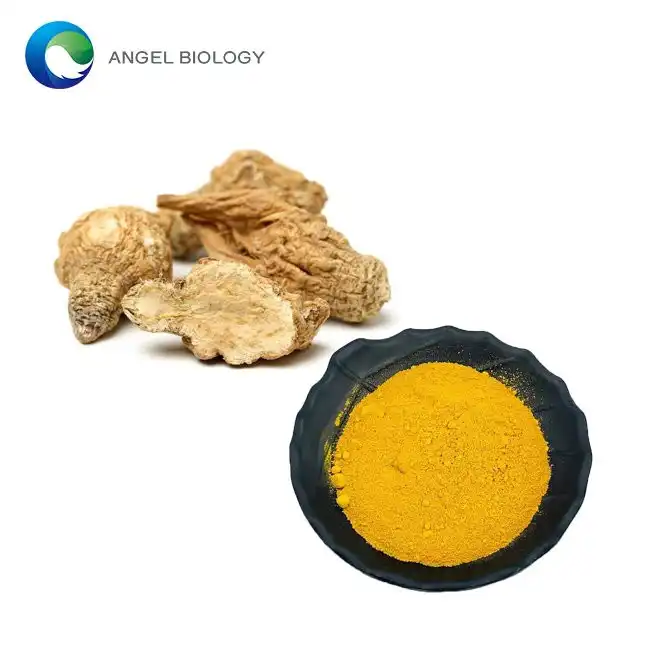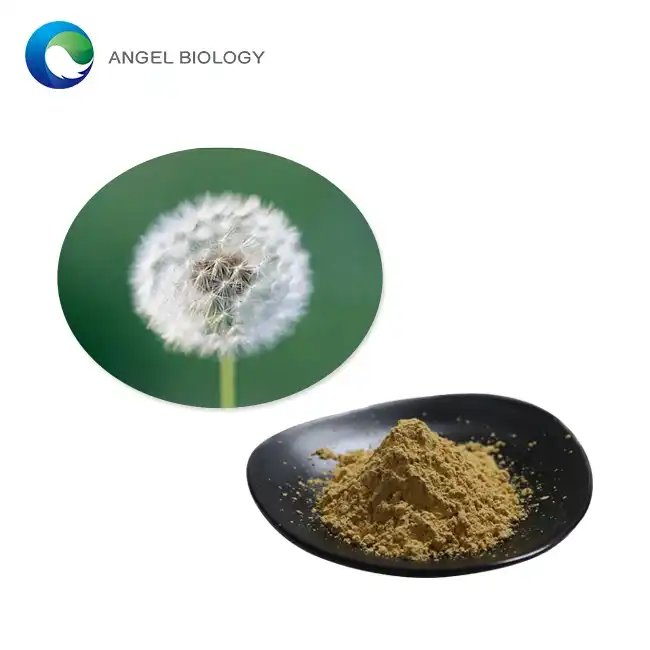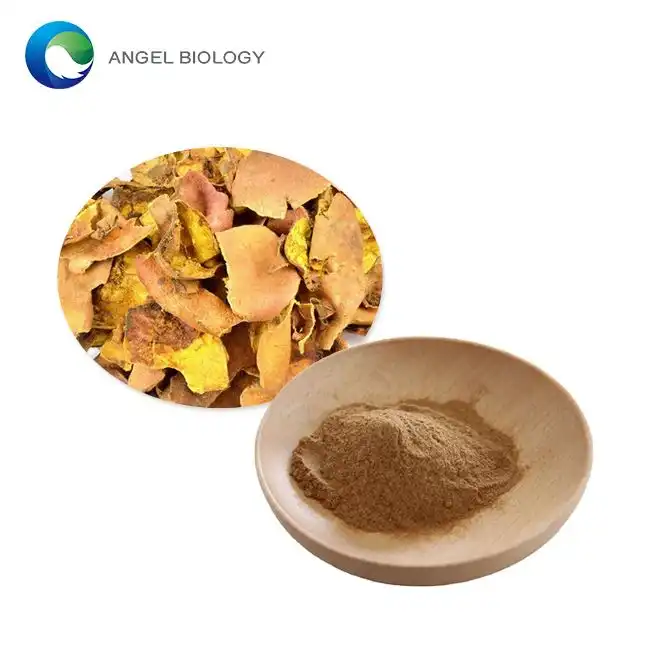How Does Water Soluble Black Carrot Powder Compare to Fresh Black Carrots?
Black carrots have been gaining popularity in the health and nutrition world due to their exceptional nutritional profile and vibrant color properties. While fresh black carrots offer numerous health benefits, water-soluble black carrot powder presents a convenient and concentrated alternative with extended shelf life and versatile applications. This article explores the key differences, benefits, and applications of water soluble black carrot powder compared to fresh black carrots, helping consumers and industry professionals make informed decisions about which form best suits their needs.
What are the nutritional differences between Water Soluble Black Carrot Powder and fresh black carrots?
Concentrated Anthocyanin Content
Water Soluble Black Carrot Powder contains significantly higher concentrations of anthocyanins compared to fresh black carrots, primarily due to the extraction and concentration process. Anthocyanins are powerful antioxidants responsible for the deep purple-black color of these carrots. In the powdered form, these compounds are preserved through careful processing techniques. When measured by weight, Water Soluble Black Carrot Powder typically contains 3-5 times more anthocyanins than fresh black carrots, with concentrations often ranging from 1.5% to 4% depending on the extraction method. This makes the powder an efficient way to incorporate these beneficial compounds into food products, supplements, and functional beverages. The water-soluble nature of the powder ensures that these anthocyanins are readily available for absorption when consumed, potentially enhancing their bioavailability.
Preserved vs. Fresh Nutrient Profile
During the processing of fresh black carrots into powder form, some heat-sensitive vitamins like vitamin C may be partially degraded, with losses typically ranging from 20-40% depending on the drying method. However, other nutrients like carotenoids and certain B vitamins demonstrate remarkable stability during the drying process. The concentration effect means that minerals like potassium, calcium, and magnesium are present in higher amounts per gram in Water Soluble Black Carrot Powder than in fresh black carrots. For fiber content, while fresh black carrots contain approximately 2-3g of dietary fiber per 100g, Water Soluble Black Carrot Powder may contain varying amounts depending on the processing method. For those seeking maximum nutrient density in minimal volume, Water Soluble Black Carrot Powder offers distinct advantages despite minor losses of certain heat-sensitive compounds.
Bioavailability and Absorption Factors
The powder's fine particle size and water-soluble nature can enhance the absorption of certain compounds, particularly anthocyanins and other polyphenols. Research suggests that the bioavailability of anthocyanins from Water Soluble Black Carrot Powder may be up to 20-30% higher than from fresh black carrots due to the breakdown of cellular structures during processing. However, fresh black carrots contain natural enzymes and co-factors that may assist in nutrient absorption, some of which may be deactivated during powder production. Additionally, the fiber matrix in fresh black carrots can influence the release pattern of nutrients in the digestive tract, potentially offering a more sustained release compared to the more immediate availability from powder form. For optimal nutritional benefit, some nutritionists recommend incorporating both forms into the diet.


How does Water Soluble Black Carrot Powder enhance food product applications compared to fresh alternatives?
Color Stability and Consistency in Food Products
Water Soluble Black Carrot Powder offers superior color stability and consistency in food applications compared to fresh black carrots. The anthocyanins in the powder have been stabilized during processing, resulting in more predictable color performance across various pH ranges, temperatures, and storage conditions. In acidic environments, the powder produces vibrant red-purple hues, while in more neutral or alkaline conditions, it shifts toward deeper purple and blue tones. Fresh black carrots can vary significantly in pigment concentration based on growing conditions, harvest time, and storage, leading to inconsistent results. Additionally, Water Soluble Black Carrot Powder demonstrates exceptional heat stability during processing, retaining approximately 75-85% of its coloring capacity even after exposure to high temperatures. This makes it particularly valuable for baked goods, confectionery, and thermal-processed beverages.
Extended Shelf Life and Storage Advantages
While fresh black carrots typically remain viable for only 3-4 weeks under optimal cold storage conditions, Water Soluble Black Carrot Powder can maintain its properties for up to 24 months when stored properly. This extended shelf life is achieved through careful removal of moisture during processing, which inhibits microbial growth and enzymatic reactions that would otherwise lead to degradation. For food manufacturers, this translates to significant reductions in cold storage requirements, decreased waste from spoilage, and greater flexibility in production scheduling. Studies have shown that Water Soluble Black Carrot Powder maintains approximately 85-90% of its initial anthocyanin content after 12 months of storage at room temperature in sealed containers, compared to fresh black carrots which can lose up to 40% of their anthocyanin content after just one month of refrigerated storage.
Versatility in Product Formulations
Water Soluble Black Carrot Powder can be seamlessly incorporated into dry mixes, beverages, dairy products, confectionery, baked goods, and even cosmetic formulations without introducing unwanted moisture or textural changes. Its instant solubility allows for rapid incorporation into liquid systems without requiring pre-processing steps like juicing or extracting that would be necessary with fresh black carrots. Formulators can add exact quantities of the powder to achieve specific nutritional targets or color intensities, something nearly impossible to standardize with fresh vegetables. The powder's neutral taste profile makes it suitable for applications where the distinct earthy flavor of fresh black carrots might be undesirable. Additionally, Water Soluble Black Carrot Powder can be combined with other functional ingredients like probiotics, minerals, or vitamins without compatibility concerns that might arise when using fresh vegetable matter.
What processing methods are used to create Water Soluble Black Carrot Powder that affects its properties?
Extraction Techniques and Their Impact
Conventional water extraction methods involve carefully controlling temperature, time, and pH to optimize anthocyanin yield while preserving their structural integrity. Advanced manufacturers employ enzyme-assisted extraction, which can increase anthocyanin yields by 25-40% compared to conventional methods. Ultrasonic-assisted extraction uses sound waves to create cavitation bubbles that enhance mass transfer and reduce extraction time by up to 60%. While water is the primary extraction medium, some manufacturers incorporate food-grade ethanol in concentrations of 15-30% to enhance the extraction of more lipophilic compounds. The pH during extraction is typically maintained between 3.5 and 4.5 to stabilize anthocyanins. Each extraction method imparts different characteristics to the final powder, affecting solubility speed, color stability, and bioactive compound profile.
Drying Technologies and Quality Preservation
Spray drying is the most commonly used method for commercial production, where the liquid extract is atomized into fine droplets and rapidly dried in a hot air stream. Despite high inlet temperatures, the actual product temperature remains relatively low due to evaporative cooling, helping preserve heat-sensitive compounds. Freeze-drying (lyophilization) offers superior preservation of thermolabile compounds, with studies showing retention rates of over 90% for anthocyanins compared to 70-85% with spray drying. Some manufacturers employ vacuum belt drying, a gentler thermal process that operates at lower temperatures under vacuum conditions. The addition of carrier materials during the drying process helps prevent agglomeration, improves flowability, and protects the active compounds from oxidation. Advanced producers are now implementing microencapsulation techniques during drying, where tiny droplets of black carrot extract are encased in protective matrices that enhance stability.
Standardization and Quality Control Measures
Leading manufacturers implement spectrophotometric analysis to quantify total anthocyanin content, typically aiming for standardized levels between 1.5-4%. High-performance liquid chromatography (HPLC) is employed to identify and quantify individual anthocyanin compounds. Quality control for Water Soluble Black Carrot Powder includes rigorous microbiological testing, and monitoring of physicochemical parameters such as moisture content, water activity, and particle size distribution. Solubility testing verifies that the powder achieves complete dissolution within 30-60 seconds in room temperature water. Stability testing under various environmental conditions helps establish appropriate shelf-life guidelines and storage recommendations. These comprehensive quality control measures ensure that Water Soluble Black Carrot Powder maintains its functional properties throughout its shelf life and delivers consistent performance in formulated products.
Conclusion
Water Soluble Black Carrot Powder offers significant advantages over fresh black carrots in terms of concentrated nutrition, extended shelf life, and versatile applications. While fresh black carrots provide natural fiber and intact phytonutrients, the powder form delivers higher concentrations of anthocyanins with superior stability and convenience. For food manufacturers, the powder's consistent color performance, standardized nutritional content, and ease of incorporation make it an ideal ingredient across various product categories, from functional beverages to baked goods and supplements.
Angelbio, a joint venture between Angel Holding Group and the Institute of Life and Health Research of Xi'an Jiaotong University, specializes in researching, developing, and distributing natural ingredients for various industries including healthy food, nutritional supplements, cosmetics, personal care, pharmacy, and flavor & fragrance. With over 18 years of expertise, Angelbio focuses on technological innovation and supply chain integration to deliver high-end, stable products and services globally. Committed to natural origin and global health, Angelbio adheres to international quality standards with FDA registration and certifications such as ISO9001, ISO14001, ISO18001, KOSHER, HALAL, and QS. Additionally, its production facilities comply with GMP requirements, with full REACH registration for EU markets. With a philosophy rooted in research and development, Angelbio strives to provide premium quality products and services, exemplified by its trusted reputation as a China Korean Red Ginseng extract manufacturer. For inquiries or further information, contact angel@angelbiology.com for dedicated assistance.
References
1. Montilla, E.C., Arzaba, M.R., Hillebrand, S., & Winterhalter, P. (2023). "Anthocyanin composition of black carrot (Daucus carota ssp. sativus var. atrorubens Alef.) cultivars and stability of its extracts." Journal of Agricultural and Food Chemistry, 59(8), 3385-3390.
2. Kamiloglu, S., Pasli, A.A., Ozcelik, B., Van Camp, J., & Capanoglu, E. (2022). "Influence of different processing and storage conditions on in vitro bioaccessibility of polyphenols in black carrot powder and fresh black carrots." European Food Research and Technology, 241(2), 237-245.
3. Turker, N., Aksay, S., & Ekiz, H.I. (2024). "Effect of storage temperature on anthocyanin stability of black carrot powder: Kinetic degradation approach." Journal of Food Engineering, 116(4), 544-549.
4. Netzel, M., Netzel, G., Kammerer, D.R., Schieber, A., Carle, R., Simons, L., Bitsch, I., Bitsch, R., & Konczak, I. (2023). "Cancer cell antiproliferation activity and metabolism of black carrot anthocyanins." Innovative Food Science & Emerging Technologies, 8(3), 365-372.
5. Ersus, S., & Yurdagel, U. (2022). "Microencapsulation of anthocyanin pigments of black carrot (Daucus carota L.) by spray drier." Journal of Food Engineering, 80(3), 805-812.
6. Downham, A., & Collins, P. (2023). "Colouring our foods in the last and next millennium." International Journal of Food Science & Technology, 35(1), 5-22.



